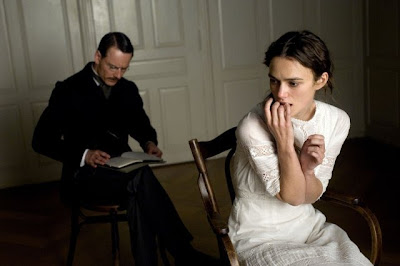 Cyra McFadden's compulsively readable "The Serial: A Year in the Life of Marin County" (Alfred A. Knopf, 1977) actually began life as a serial. Its 52 chapters appeared each week in Marin County's grand alt-weekly, the Pacific Sun (the West Coast's answer to The Village Voice and an alternative nearly as old as the Voice), and the series deliciously satirized the relentless trendiness of Marin and its denizens, circa the '70s.
Cyra McFadden's compulsively readable "The Serial: A Year in the Life of Marin County" (Alfred A. Knopf, 1977) actually began life as a serial. Its 52 chapters appeared each week in Marin County's grand alt-weekly, the Pacific Sun (the West Coast's answer to The Village Voice and an alternative nearly as old as the Voice), and the series deliciously satirized the relentless trendiness of Marin and its denizens, circa the '70s.The material was too good not to be filmed and it was inevitably tackled in 1980 by Bill Persky, a TV hand ("Alice," "That Girl") new to films. With its title shortened, "Serial" would be the only theatrical film directed by Persky, but it's a minor gem, extremely well-cast.
Tuesday Weld and Martin Mull (in a rare leading-man role) play the Holroyds - Kate and Harvey - a groovy couple forever trying to define the parameters of their relationship. They're into shared responsibility and seem to have it all together. But Kate's consciousness-raising group (Sally Kellerman, Pamela Bellwood, Barbara Rhodes and the priceless Nita Talbot) thinks otherwise. They convince her that she's suffering from "negative family dynamics" and that she needs her own space.
And so as Kate and Harvey experiment with an open marriage and new relationships (Kate with an Argentinian dog clipper), their daughter Joanie (Jennifer McAlister) joins the Church of Oriental Christian Harmony and their assorted friends dabble in vegetarianism, actualism, lesbianism and homoerotic cycle gangs.

Persky gives his talented, attractive cast free reign and lets everyone hang loose, successfully sustaining the funny ideas behind McFadden's observations. At a breezy 92 minutes, the film zips along and stays true to its R rating.
BTW, the movie year 1980 was a particularly good one for screen comedy. In addition to "Serial," the year gave us an eclectic array including - here goes - Sidney Lumet's "Just Tell Me What You Want," Richard Benner's "Happy Birthday, Gemini," John Landis' "The Blues Brothers," the Zucker-Abrahams' "Airplane," Michael Pressman's "Those Lips, Those Eyes," Jonathan Demme's "Melvin and Howard," Ronald Neame's "Hopscotch," Woody Allen's "Stardust Memories," Howard Zeiff's "Private Benjamin," Harold Ramis' "Caddyshack," Colin Higgins' "Nine to Five," Robert Zemeckis' "Used Cars," Buck Henry's "First Family," Jay Sandrich's "Seems Like Old Times," Anne Bancroft's "Fatso," Gilbert Cates' "The Last Married Couple in America," Ronald Maxwell's "Little Darlings," Brian DePalma's "Home Movies," Alan Rudolph's "Roadie" and Art Linson's "Where the Buffalo Roam."
As for Cyra McFadden, she went on to write a biweekly column for the San Francisco Examiner in the 1980s and produced the acclaimed memoir, "Rain or Shine: A Family Memoir" in 1986, detailing her childhood traveling with parents who worked on the rodeo circuit.
























